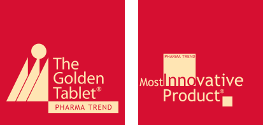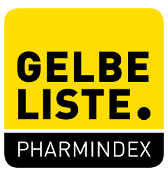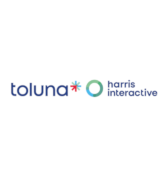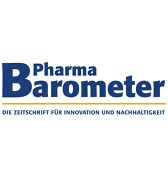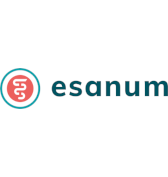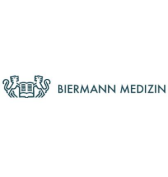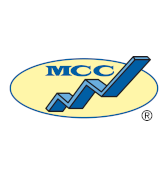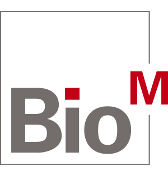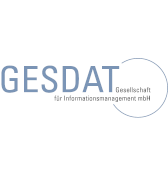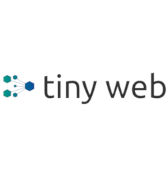Three-year median follow-up data demonstrate significantly improved disease-free survival, non-urothelial tract recurrence-free survival, distant metastasis-free survival and second progression-free survival with adjuvant Opdivo compared to placebo
Randomized patients who received Opdivo after radical surgery remained disease–free more than twice as long vs. placebo; patients whose tumor cells express PD-L1 ≥1% remained disease–free more than six times as long vs. placebo
Updated results from the Phase 3 CheckMate -274 trial will be presented in a late-breaking oral presentation at ASCO GU 2023
PRINCETON, N.J.–(BUSINESS WIRE)–$BMY #BMS—Bristol Myers Squibb (NYSE: BMY) today announced three-year follow-up results from the Phase 3 CheckMate -274 trial, demonstrating significant sustained clinical benefits with Opdivo (nivolumab) for the adjuvant treatment of patients with surgically resected, high-risk muscle-invasive urothelial carcinoma. With a median follow-up of 36.1 months (31.6 months minimum), adjuvant Opdivo continued to show improved disease-free survival (DFS), non-urothelial tract recurrence-free survival (NUTRFS), distant metastasis-free survival (DMFS) and second progression-free survival (PFS2) compared to placebo across all-randomized patients and in patients whose tumor cells express PD-L1 ≥1%. These updated results will be featured in a late-breaking oral presentation at the American Society of Clinical Oncology (ASCO) 2023 Genitourinary Cancers Symposium from February 16-18, 2023.
“Patients with muscle-invasive urothelial carcinoma face a high chance of recurrence due to micrometastatic disease, especially within the first three years after surgical removal of the bladder or kidney. The three-year results from CheckMate -274 show a stable decrease in the risk of disease with adjuvant nivolumab with longer follow-up,” said Matthew D. Galsky,* M.D., Professor of Medicine, Director of Genitourinary Medical Oncology, Associate Director for Translational Research, and Co-Director of the Center of Excellence for Bladder Cancer at The Tisch Cancer Institute and the Icahn School of Medicine at Mount Sinai. “Nivolumab remains the only immunotherapy, as well as the only medical treatment in general, to decrease the risk of urothelial cancer recurrence after radical surgery in patients who received chemotherapy prior to surgery or who are ineligible for chemotherapy. The results of this trial have changed the way that urothelial cancer is treated.”
With three years of follow-up in the CheckMate -274 trial:
- DFS (primary endpoint): Across all randomized patients, Opdivo more than doubled the average length of time patients lived without disease recurrence, demonstrating a median disease-free survival of 22.0 months compared to 10.9 months with placebo, a risk reduction of 29% (Hazard Ratio [HR] 0.71, 95% Confidence Interval [CI]: 0.58 to 0.86). The risk reduction remained consistent with that observed at the primary analysis, with only a 1% change with an additional 25.7 months of minimum follow-up (a risk reduction of 30% was observed with 5.9 months minimum follow-up at the primary analysis; HR 0.70). In patients whose tumor cells express PD-L1 ≥1%, Opdivo extended the average length of time patients lived without disease recurrence more than six times compared to placebo, with median DFS of 52.6 months vs. 8.4 months with placebo (HR 0.52, 95% CI: 0.37 to 0.72), a 48% reduction in the risk of disease recurrence or death.
- NUTRFS (secondary endpoint): In all randomized patients, those treated with Opdivo showed a median NUTRFS, defined as the time that patients lived without disease recurrence outside of the bladder, ureters or renal pelvis, of 25.9 months compared to 13.7 months for placebo (HR 0.72, 95% CI: 0.59 to 0.88). In patients whose tumor cells express PD-L1 ≥1%, median NUTRFS was 52.6 months with Opdivo vs. 8.4 months with placebo (HR 0.53, 95% CI: 0.38 to 0.74).
- DMFS (exploratory endpoint): Across all randomized patients, median DMFS, defined as the time that patients live without cancer spreading from the primary tumor to distant organs or lymph nodes, was 47.1 months with Opdivo vs. 28.7 months with placebo (HR 0.74, 95% CI: 0.60 to 0.92). Among patients whose tumor cells express PD-L1 ≥1%, median DMFS was not reached with Opdivo, compared to 20.7 months with placebo (HR 0.58, 95% CI: 0.40 to 0.84).
- PFS2 (exploratory endpoint): Median PFS2, defined as the time from randomization to disease progression after subsequent next-line systemic therapy, start of second subsequent next-line systemic therapy, or death, was 61.2 months for all-randomized patients treated with Opdivo compared to 47.1 months with placebo (HR 0.79, 95% CI: 0.63 to 0.98). In patients whose tumor cells express PD-L1 ≥1%, median PFS2 was not reached with Opdivo vs. 39.4 months with placebo (HR 0.54, 95% CI: 0.37 to 0.79).
- Safety: Grade 3-4 treatment-related adverse events occurred in 18.2% and 7.2% of patients in the Opdivo and placebo arms, respectively, consistent with the primary analysis.
“We strive to provide hope for patients by offering safe and effective options that may help prevent recurrence and improve long-term outcomes. This is why earlier stages of cancer is an important research area for Bristol Myers Squibb across multiple tumor types, including hard-to-treat cancers with high unmet needs like urothelial carcinoma,” said Dana Walker, M.D., M.S.C.E., vice president, development program lead, genitourinary cancers, Bristol Myers Squibb. “The durable follow-up results from CheckMate -274 continue to fuel our excitement toward our ongoing research in earlier stages and its potential to change outcomes for patients. We look forward to closely following the CheckMate -274 trial, which is ongoing to assess additional key secondary endpoints, including overall survival to which we currently remain blinded.”
Bristol Myers Squibb thanks the patients and investigators involved in the CheckMate -274 clinical trial.
About CheckMate -274
CheckMate -274 is a Phase 3 randomized, double-blind, multi-center study evaluating Opdivo compared to placebo in patients with muscle-invasive urothelial carcinoma at a high risk of recurrence after radical resection. A total of 709 patients were randomized 1:1 to receive Opdivo 240 mg or placebo every two weeks for up to one year. The primary endpoints of the trial are disease-free survival (DFS) in all randomized patients (i.e., the intention-to-treat population) and in the subset of patients whose tumor cells express PD-L1 ≥1%. Key secondary endpoints include overall survival (OS), non-urothelial tract recurrence-free survival (NUTRFS) and disease-specific survival (DSS). Key exploratory endpoints include distant metastasis-free survival (DMFS), quality of life (QoL) and second progression-free survival (PFS2).
About Urothelial Carcinoma
Bladder cancer is the 10th most common cancer in the world, with more than 573,000 new cases diagnosed annually. Urothelial carcinoma, which most frequently begins in the cells that line the inside of the bladder, accounts for approximately 90% of bladder cancer cases. In addition to the bladder, urothelial carcinoma can occur in other parts of the urinary tract, including the ureters and renal pelvis. The majority of urothelial carcinomas are diagnosed at an early stage, but rates of recurrence and disease progression are high. Approximately 50% of patients who undergo radical surgery will experience disease recurrence, especially within the first three years after surgical removal of the bladder or kidney. For patients whose disease recurs as metastatic cancer, the prognosis is poor, with a median overall survival of approximately 12 to 14 months when treated with systemic therapy.
Bristol Myers Squibb: Creating a Better Future for People with Cancer
Bristol Myers Squibb is inspired by a single vision — transforming patients’ lives through science. The goal of the company’s cancer research is to deliver medicines that offer each patient a better, healthier life and to make cure a possibility. Building on a legacy across a broad range of cancers that have changed survival expectations for many, Bristol Myers Squibb researchers are exploring new frontiers in personalized medicine, and through innovative digital platforms, are turning data into insights that sharpen their focus. Deep scientific expertise, cutting-edge capabilities and discovery platforms enable the company to look at cancer from every angle. Cancer can have a relentless grasp on many parts of a patient’s life, and Bristol Myers Squibb is committed to taking actions to address all aspects of care, from diagnosis to survivorship. Because as a leader in cancer care, Bristol Myers Squibb is working to empower all people with cancer to have a better future.
About Opdivo
Opdivo is a programmed death-1 (PD-1) immune checkpoint inhibitor that is designed to uniquely harness the body’s own immune system to help restore anti-tumor immune response. By harnessing the body’s own immune system to fight cancer, Opdivo has become an important treatment option across multiple cancers.
Opdivo’s leading global development program is based on Bristol Myers Squibb’s scientific expertise in the field of Immuno-Oncology and includes a broad range of clinical trials across all phases, including Phase 3, in a variety of tumor types. To date, the Opdivo clinical development program has treated more than 35,000 patients. The Opdivo trials have contributed to gaining a deeper understanding of the potential role of biomarkers in patient care, particularly regarding how patients may benefit from Opdivo across the continuum of PD-L1 expression.
In July 2014, Opdivo was the first PD-1 immune checkpoint inhibitor to receive regulatory approval anywhere in the world. Opdivo is currently approved in more than 65 countries, including the United States, the European Union, Japan and China. In September 2015, the Company’s Opdivo and Yervoy combination regimen was the first Immuno-Oncology combination to receive regulatory approval for the treatment of metastatic melanoma and is currently approved in more than 50 countries, including the United States and the European Union.
INDICATIONS
OPDIVO® (nivolumab), as a single agent, is indicated for the treatment of adult and pediatric (12 years and older) patients with unresectable or metastatic melanoma.
OPDIVO® (nivolumab), in combination with YERVOY® (ipilimumab), is indicated for the treatment of adult and pediatric (12 years and older) patients with unresectable or metastatic melanoma.
OPDIVO® (nivolumab) is indicated for the adjuvant treatment of adult and pediatric (12 years and older) patients with melanoma with involvement of lymph nodes or metastatic disease who have undergone complete resection.
OPDIVO® (nivolumab), in combination with platinum-doublet chemotherapy, is indicated as neoadjuvant treatment of adult patients with resectable (tumors ≥4 cm or node positive) non-small cell lung cancer (NSCLC).
OPDIVO® (nivolumab), in combination with YERVOY® (ipilimumab), is indicated for the first-line treatment of adult patients with metastatic non-small cell lung cancer (NSCLC) whose tumors express PD-L1 (≥1%) as determined by an FDA-approved test, with no EGFR or ALK genomic tumor aberrations.
OPDIVO® (nivolumab), in combination with YERVOY® (ipilimumab) and 2 cycles of platinum-doublet chemotherapy, is indicated for the first-line treatment of adult patients with metastatic or recurrent non-small cell lung cancer (NSCLC), with no EGFR or ALK genomic tumor aberrations.
OPDIVO® (nivolumab) is indicated for the treatment of adult patients with metastatic non-small cell lung cancer (NSCLC) with progression on or after platinum-based chemotherapy. Patients with EGFR or ALK genomic tumor aberrations should have disease progression on FDA-approved therapy for these aberrations prior to receiving OPDIVO.
OPDIVO® (nivolumab), in combination with YERVOY® (ipilimumab), is indicated for the first-line treatment of adult patients with unresectable malignant pleural mesothelioma (MPM).
OPDIVO® (nivolumab), in combination with YERVOY® (ipilimumab), is indicated for the first-line treatment of adult patients with intermediate or poor risk advanced renal cell carcinoma (RCC).
OPDIVO® (nivolumab), in combination with cabozantinib, is indicated for the first-line treatment of adult patients with advanced renal cell carcinoma (RCC).
OPDIVO® (nivolumab) is indicated for the treatment of adult patients with advanced renal cell carcinoma (RCC) who have received prior anti-angiogenic therapy.
OPDIVO® (nivolumab) is indicated for the treatment of adult patients with classical Hodgkin lymphoma (cHL) that has relapsed or progressed after autologous hematopoietic stem cell transplantation (HSCT) and brentuximab vedotin or after 3 or more lines of systemic therapy that includes autologous HSCT. This indication is approved under accelerated approval based on overall response rate. Continued approval for this indication may be contingent upon verification and description of clinical benefit in confirmatory trials.
OPDIVO® (nivolumab) is indicated for the treatment of adult patients with recurrent or metastatic squamous cell carcinoma of the head and neck (SCCHN) with disease progression on or after platinum-based therapy.
OPDIVO® (nivolumab) is indicated for the treatment of adult patients with locally advanced or metastatic urothelial carcinoma who have disease progression during or following platinum-containing chemotherapy or have disease progression within 12 months of neoadjuvant or adjuvant treatment with platinum-containing chemotherapy.
OPDIVO® (nivolumab), as a single agent, is indicated for the adjuvant treatment of adult patients with urothelial carcinoma (UC) who are at high risk of recurrence after undergoing radical resection of UC.
OPDIVO® (nivolumab), as a single agent, is indicated for the treatment of adult and pediatric (12 years and older) patients with microsatellite instability-high (MSI-H) or mismatch repair deficient (dMMR) metastatic colorectal cancer (CRC) that has progressed following treatment with a fluoropyrimidine, oxaliplatin, and irinotecan. This indication is approved under accelerated approval based on overall response rate and duration of response. Continued approval for this indication may be contingent upon verification and description of clinical benefit in confirmatory trials.
OPDIVO® (nivolumab), in combination with YERVOY® (ipilimumab), is indicated for the treatment of adult and pediatric (12 years and older) patients with microsatellite instability-high (MSI-H) or mismatch repair deficient (dMMR) metastatic colorectal cancer (CRC) that has progressed following treatment with a fluoropyrimidine, oxaliplatin, and irinotecan. This indication is approved under accelerated approval based on overall response rate and duration of response. Continued approval for this indication may be contingent upon verification and description of clinical benefit in confirmatory trials.
OPDIVO® (nivolumab), in combination with YERVOY® (ipilimumab), is indicated for the treatment of adult patients with hepatocellular carcinoma (HCC) who have been previously treated with sorafenib. This indication is approved under accelerated approval based on overall response rate and duration of response. Continued approval for this indication may be contingent upon verification and description of clinical benefit in the confirmatory trials.
OPDIVO® (nivolumab) is indicated for the treatment of adult patients with unresectable advanced, recurrent or metastatic esophageal squamous cell carcinoma (ESCC) after prior fluoropyrimidine- and platinum-based chemotherapy.
OPDIVO® (nivolumab) is indicated for the adjuvant treatment of completely resected esophageal or gastroesophageal junction cancer with residual pathologic disease in adult patients who have received neoadjuvant chemoradiotherapy (CRT).
OPDIVO® (nivolumab), in combination with fluoropyrimidine- and platinum-containing chemotherapy, is indicated for the first-line treatment of adult patients with unresectable advanced or metastatic esophageal squamous cell carcinoma (ESCC).
OPDIVO® (nivolumab), in combination with YERVOY® (ipilimumab), is indicated for the first-line treatment of adult patients with unresectable advanced or metastatic esophageal squamous cell carcinoma (ESCC).
OPDIVO® (nivolumab), in combination with fluoropyrimidine- and platinum- containing chemotherapy, is indicated for the treatment of adult patients with advanced or metastatic gastric cancer, gastroesophageal junction cancer, and esophageal adenocarcinoma.
IMPORTANT SAFETY INFORMATION
Severe and Fatal Immune-Mediated Adverse Reactions
Immune-mediated adverse reactions listed herein may not include all possible severe and fatal immune- mediated adverse reactions.
Immune-mediated adverse reactions, which may be severe or fatal, can occur in any organ system or tissue. While immune-mediated adverse reactions usually manifest during treatment, they can also occur after discontinuation of OPDIVO or YERVOY. Early identification and management are essential to ensure safe use of OPDIVO and YERVOY. Monitor for signs and symptoms that may be clinical manifestations of underlying immune-mediated adverse reactions. Evaluate clinical chemistries including liver enzymes, creatinine, adrenocorticotropic hormone (ACTH) level, and thyroid function at baseline and periodically during treatment with OPDIVO and before each dose of YERVOY. In cases of suspected immune-mediated adverse reactions, initiate appropriate workup to exclude alternative etiologies, including infection. Institute medical management promptly, including specialty consultation as appropriate.
Withhold or permanently discontinue OPDIVO and YERVOY depending on severity (please see section 2 Dosage and Administration in the accompanying Full Prescribing Information). In general, if OPDIVO or YERVOY interruption or discontinuation is required, administer systemic corticosteroid therapy (1 to 2 mg/kg/day prednisone or equivalent) until improvement to Grade 1 or less. Upon improvement to Grade 1 or less, initiate corticosteroid taper and continue to taper over at least 1 month. Consider administration of other systemic immunosuppressants in patients whose immune-mediated adverse reactions are not controlled with corticosteroid therapy. Toxicity management guidelines for adverse reactions that do not necessarily require systemic steroids (e.g., endocrinopathies and dermatologic reactions) are discussed below.
Immune-Mediated Pneumonitis
OPDIVO and YERVOY can cause immune-mediated pneumonitis. The incidence of pneumonitis is higher in patients who have received prior thoracic radiation. In patients receiving OPDIVO monotherapy, immune- mediated pneumonitis occurred in 3.1% (61/1994) of patients, including Grade 4 (<0.1%), Grade 3 (0.9%), and Grade 2 (2.1%). In patients receiving OPDIVO 1 mg/kg with YERVOY 3 mg/kg every 3 weeks, immune-mediated pneumonitis occurred in 7% (31/456) of patients, including Grade 4 (0.2%), Grade 3 (2.0%), and Grade 2 (4.4%). In patients receiving OPDIVO 3 mg/kg with YERVOY 1 mg/kg every 3 weeks, immune-mediated pneumonitis occurred in 3.9% (26/666) of patients, including Grade 3 (1.4%) and Grade 2 (2.6%). In NSCLC patients receiving OPDIVO 3 mg/kg every 2 weeks with YERVOY 1 mg/kg every 6 weeks, immune-mediated pneumonitis occurred in 9% (50/576) of patients, including Grade 4 (0.5%), Grade 3 (3.5%), and Grade 2 (4.0%). Four patients (0.7%) died due to pneumonitis.
In Checkmate 205 and 039, pneumonitis, including interstitial lung disease, occurred in 6.0% (16/266) of patients receiving OPDIVO. Immune-mediated pneumonitis occurred in 4.9% (13/266) of patients receiving OPDIVO, including Grade 3 (n=1) and Grade 2 (n=12).
Immune-Mediated Colitis
OPDIVO and YERVOY can cause immune-mediated colitis, which may be fatal. A common symptom included in the definition of colitis was diarrhea. Cytomegalovirus (CMV) infection/reactivation has been reported in patients with corticosteroid-refractory immune-mediated colitis. In cases of corticosteroid-refractory colitis, consider repeating infectious workup to exclude alternative etiologies. In patients receiving OPDIVO monotherapy, immune-mediated colitis occurred in 2.9% (58/1994) of patients, including Grade 3 (1.7%) and Grade 2 (1%). In patients receiving OPDIVO 1 mg/kg with YERVOY 3 mg/kg every 3 weeks, immune-mediated colitis occurred in 25% (115/456) of patients, including Grade 4 (0.4%), Grade 3 (14%) and Grade 2 (8%). In patients receiving OPDIVO 3 mg/kg with YERVOY 1 mg/kg every 3 weeks, immune-mediated colitis occurred in 9% (60/666) of patients, including Grade 3 (4.4%) and Grade 2 (3.7%).
Immune-Mediated Hepatitis and Hepatotoxicity
OPDIVO and YERVOY can cause immune-mediated hepatitis. In patients receiving OPDIVO monotherapy, immune-mediated hepatitis occurred in 1.8% (35/1994) of patients, including Grade 4 (0.2%), Grade 3 (1.3%), and Grade 2 (0.4%). In patients receiving OPDIVO 1 mg/kg with YERVOY 3 mg/kg every 3 weeks, immune- mediated hepatitis occurred in 15% (70/456) of patients, including Grade 4 (2.4%), Grade 3 (11%), and Grade 2 (1.8%). In patients receiving OPDIVO 3 mg/kg with YERVOY 1 mg/kg every 3 weeks, immune-mediated hepatitis occurred in 7% (48/666) of patients, including Grade 4 (1.2%), Grade 3 (4.9%), and Grade 2 (0.4%).
OPDIVO in combination with cabozantinib can cause hepatic toxicity with higher frequencies of Grade 3 and 4 ALT and AST elevations compared to OPDIVO alone. Consider more frequent monitoring of liver enzymes as compared to when the drugs are administered as single agents. In patients receiving OPDIVO and cabozantinib, Grades 3 and 4 increased ALT or AST were seen in 11% of patients.
Immune-Mediated Endocrinopathies
OPDIVO and YERVOY can cause primary or secondary adrenal insufficiency, immune-mediated hypophysitis, immune-mediated thyroid disorders, and Type 1 diabetes mellitus, which can present with diabetic ketoacidosis. Withhold OPDIVO and YERVOY depending on severity (please see section 2 Dosage and Administration in the accompanying Full Prescribing Information). For Grade 2 or higher adrenal insufficiency, initiate symptomatic treatment, including hormone replacement as clinically indicated. Hypophysitis can present with acute symptoms associated with mass effect such as headache, photophobia, or visual field defects. Hypophysitis can cause hypopituitarism; initiate hormone replacement as clinically indicated. Thyroiditis can present with or without endocrinopathy. Hypothyroidism can follow hyperthyroidism; initiate hormone replacement or medical management as clinically indicated. Monitor patients for hyperglycemia or other signs and symptoms of diabetes; initiate treatment with insulin as clinically indicated.
In patients receiving OPDIVO monotherapy, adrenal insufficiency occurred in 1% (20/1994), including Grade 3 (0.4%) and Grade 2 (0.6%).In patients receiving OPDIVO 1 mg/kg with YERVOY 3 mg/kg every 3 weeks, adrenal insufficiency occurred in 8% (35/456), including Grade 4 (0.2%), Grade 3 (2.4%), and Grade 2 (4.
Contacts
Bristol Myers Squibb
Media Inquiries:
media@bms.com
Investors:
investor.relations@bms.com
